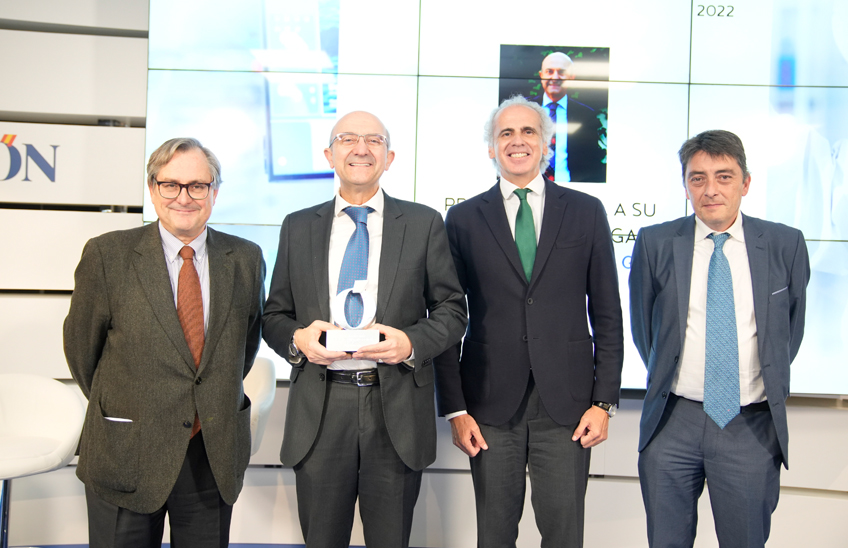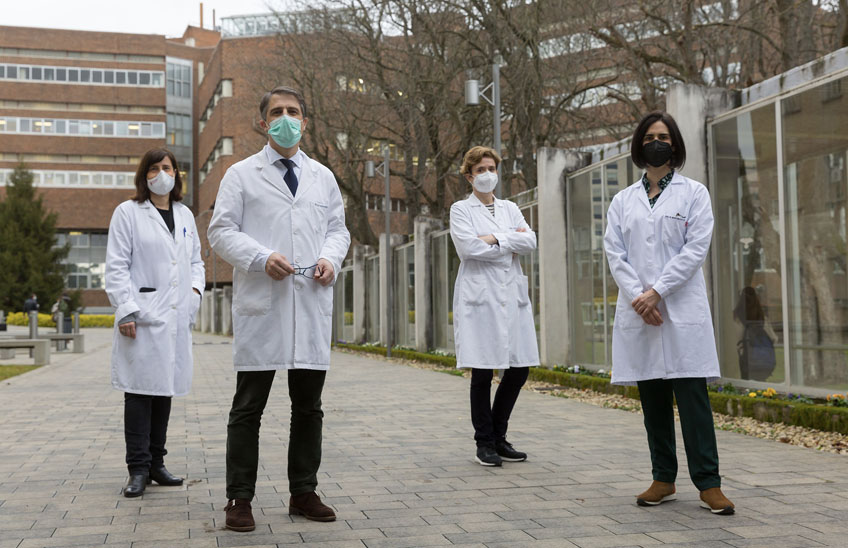The Universities of Navarra and Harvard hold an international symposium on nutrition and cardiometabolic diseases
The 7th Annual Nutrition Omics Symposium will be held virtually on Thursday 1 July.

PhotoCedit/FrankHu, Full Professor of Nutrition and director of the Harvard School of Public Health (TH Chan - School of Public Health) and Miguel Ángel Martínez-González, Full Professor and director of the department of Preventive Medicine and Public Health of the School of Medicine of the University
30 | 06 | 2021
The annual symposium "Nutrition Omics", on new omics techniques - genomics, metabolomics, metagenomics, etc. - applied to the prevention of cardiometabolic diseases - such as diabetes or cardiovascular pathologies - through nutrition, will be held for the seventh consecutive year on Thursday 1 July. Organised by the universities of Navarra and Harvard, in partnership with the University of Barcelona, it will be held virtually due to the pandemic, as was the case with the sixth edition of last year's course. More than 500 participants are expected to attend.
The symposium, which also presents in each edition the advances that the Spanish group PREDIMED has made in partnership with the Harvard School of Public Health, and which has the subtitle "Advances, applications and translations in nutrition and epidemiology", will take place between 14h. and 20h. Spanish. Although registration is free of charge, those interested should register.
The workshop will be chaired by Frank Hu, Full Professor of Nutrition and director of the Harvard School of Public Health (TH Chan - School of Public Health) and Miguel Ángel Martínez-González, Full Professor and director of the department of Preventive Medicine and Public Health of the School of Medicine of the University of Navarra. In addition, in this edition will participate, among others, prominent researchers such as Carlos Diéguez, director scientist of the CIBER of Obesity and Nutrition; David Wishard, from the University of Alberta; Isabel García Pérez, from Imperial College London; Javier Delgado, from the University of Córdoba; Andrew Chan, from the Massachusetts General Hospital; Jordi Salas, from the University Rovira i Virgili; and Rosa María Lamuela-Raventós, from the University of Barcelona. enquiry the complete program.
Disseminating the science behind nutritional evidence
"Although it is positive that the world of healthy habits and healthy per diem expenses is becoming more and more fashionable, there is a huge need to disseminate all the science behind the nutritional evidence, which can be obtained thanks to processes such as omics techniques. They are hardly known, but they are the solid bridges that allow us to link and directly relate nutrition to cardiovascular diseases, the main cause of death in the West, and also to other pathologies such as diabetes," says Miguel Ángel Martínez-González. "We are confident that this edition of the symposium will be as successful as previous ones, thanks to the quality of the speakers. We also hope that next year we will be able to resume workshop, probably at campus in Madrid at the University of Navarra," he concludes.




